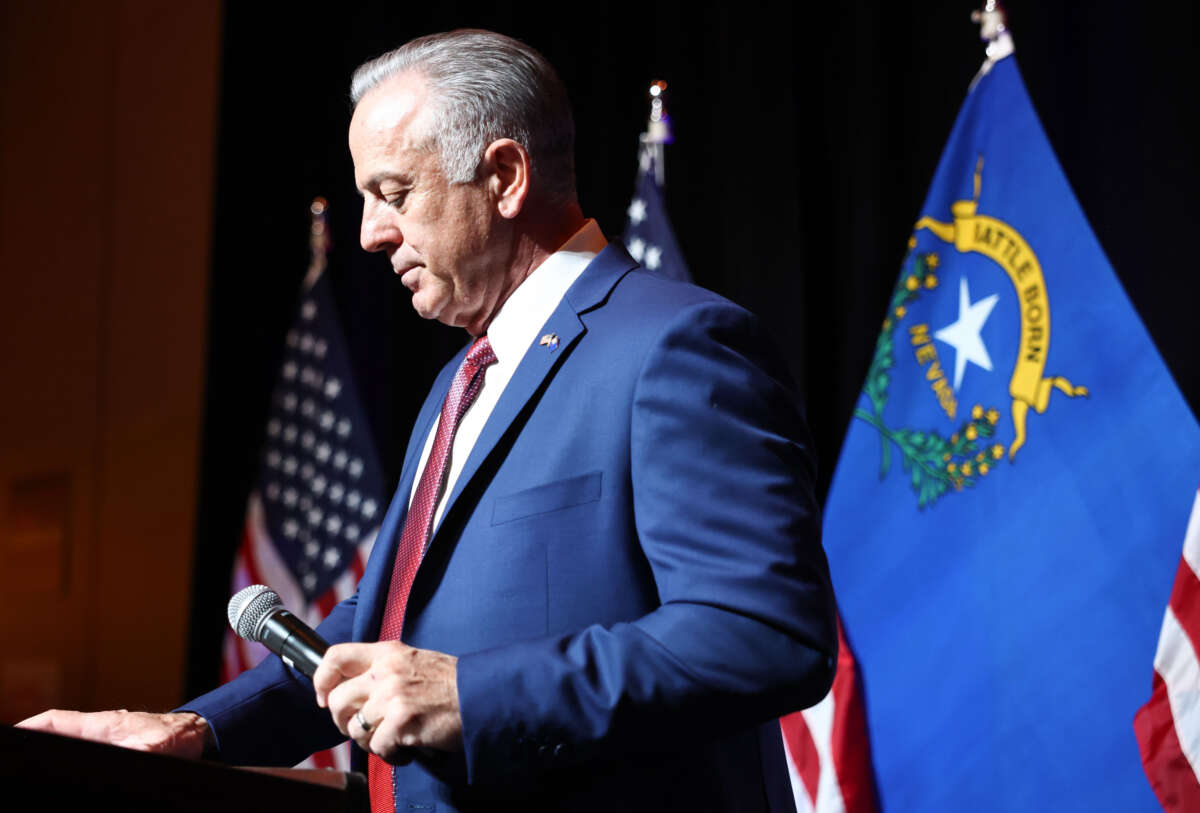Nevada Republican Gov. Joe Lombardo signed into law on Tuesday a bill that provides greater reproductive and privacy rights protections for individuals coming to the state seeking abortion services.
With several states across the country enacting abortion bans or severe restrictions, following the Supreme Court last summer overturning the landmark abortion rights case Roe v. Wade, several other states that have kept or even expanded abortion rights have anticipated that some residents in those restrictive areas may travel to them in order to obtain the procedure.
Nevada is likely to be one of those states, given its history of supporting abortion access — the state passed a bill in 1973, immediately after Roe was decided, codifying the right to an abortion, although it does restrict it past 24 weeks of pregnancy. In 1990, a ballot initiative passed wherein voters added those protections to the state constitution as well, making them reversible only if a similar ballot overturning them occurs.
With polling showing that a majority of Nevadans support keeping abortion rights in place, such a reversal is highly unlikely.
Concerned, however, that travelers to the state seeking abortion services could still be punished by state legislatures elsewhere, through potential laws forbidding such ventures, former Gov. Steve Sisolak, a Democrat, issued an executive order in June last year, when he was in office, forbidding state agencies from cooperating with other states in investigations of those travelers. That executive order became a campaign issue when Sisolak and Lombardo squared off against each other in the 2022 gubernatorial election, which Lombardo won.
During the campaign season, Lombardo frequently waffled on the issue, sometimes expressing support for more restrictive abortion measures and other times saying he had no intention of changing the standard that voters had endorsed in 1990. Lombardo, who has described himself as a “pro-life” Catholic and who has also voiced support for restricting certain kinds of birth control, at one point said he’d sign into law a bill that would codify Sisolak’s order rather than extend the executive order if he won the governorship.
Democrats in the state legislature held him to his word, and passed Senate Bill 131, which would indeed codify Sisolak’s previous order, earlier this month. On Tuesday, Lombardo, who received an endorsement in the election last year from the far right, anti-abortion group National Right to Life, signed the bill into law.
Democrats in the state legislature were happy that he did so. “I want to thank (Lombardo) for following through on his commitment to ensuring that Nevada won’t participate in prosecutions of women who come here to exercise their reproductive rights,” said Senate Majority Leader Nicole Cannizzaro (D), the sponsor of the bill.
Although lawmakers did express gratitude for Lombardo signing the bill, it’s possible he did so for political reasons. The state Democratic Party last year accused Lombardo of shifting his position so often because he recognized being anti-abortion was not a popular opinion. In addition, the state legislature would have likely been able to override Lombardo’s veto anyway, rendering any action he took to block the bill a moot point.
Both houses of the state legislature must have two-thirds of their members vote to override a veto in order to be successful. In the State Senate, that requires 14 votes — the abortion protections bill passed in that chamber in April with 15 votes. In the state Assembly, it requires 28 votes — 27 lawmakers in that chamber supported the bill, with a likely 28th vote also backing it, if a veto had happened, since one Democratic legislator was absent on the day the bill was voted on in May.
Reproductive rights groups have lauded lawmakers for passing the bill into law. NARAL Pro-Choice Nevada celebrated the bill’s passage earlier this month, explaining its importance not just to individuals seeking abortion care in the state but throughout the country as well.
“Nevada is playing a critical role in providing abortion care in the Southwest as our neighboring states enact bans that force people to travel to access care,” NARAL Pro-Choice Southwest Regional Director Caroline Mello Roberson said in a statement on May 22.
Press freedom is under attack
As Trump cracks down on political speech, independent media is increasingly necessary.
Truthout produces reporting you won’t see in the mainstream: journalism from the frontlines of global conflict, interviews with grassroots movement leaders, high-quality legal analysis and more.
Our work is possible thanks to reader support. Help Truthout catalyze change and social justice — make a tax-deductible monthly or one-time donation today.
